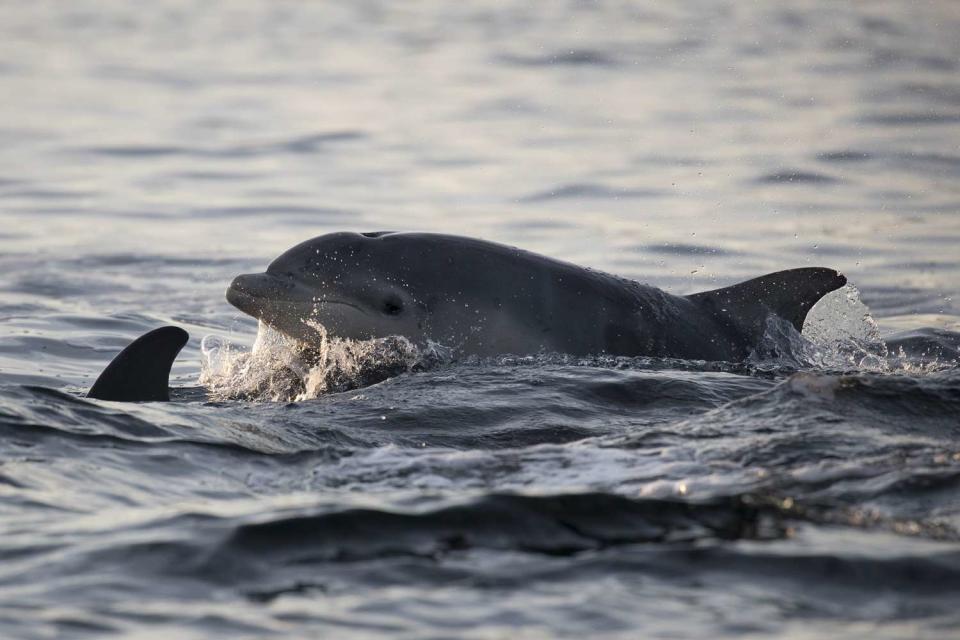Florida Dolphin Found 'In Distress' Later Diagnosed with Bird Flu, Study Finds
The bottlenose dolphin's case marks the first time highly pathogenic avian influenza has been detected in a U.S. dolphin

An April study shared that a Florida dolphin is the first in the U.S. to be diagnosed with the bird flu.
Researchers at the University of Florida, working with multiple agencies, detected the disease, also called highly pathogenic avian influenza (HPAI), in the dolphin and documented their findings in the April 2024 edition of Communications Biology.
The study included observations of the marine mammal taken from the 2022 discovery of the "in distress" dolphin in a canal in Dixie County, Fla., and the results of the animal's postmortem exam.
The bottlenose dolphin died before University of Florida Marine Animal Rescue team members could attempt a rescue.
Before researchers detected traces of the bird flu in the dolphin, they noticed the male animal had inflammation of the brain and leptomeninges disease, which other Florida wildlife diagnosed with the bird flu had exhibited.
Related: World Health Organization Expresses 'Enormous Concern' About Bird Flu Spreading to Humans
Never miss a story — sign up for PEOPLE's free daily newsletter to stay up-to-date on the best of what PEOPLE has to offer, from celebrity news to compelling human interest stories.
When tested for HPAI, traces of the "highly pathogenic" virus were found in the dolphin, with the highest concentration in his brain, per the study. It's unclear how the dolphin contracted the disease.
The current bird flu outbreak began in 2020 and was first detected in the U.S. in 2022. H5N1 bird flu has been detected in birds and mammals, including marine life. The study noted that Harbor seals and gray seals died of the bird flu in New England and Canada in 2022, and the disease also caused the death of sea lions in Peru and Chile.
The report in Biology Communications said transmission of the bird flu "between dolphins and other cetacea could be catastrophic for these populations."
Related: Texas Resident Contracts Bird Flu from Infected Dairy Cows
Studying the deceased dolphin helped researchers further understand the disease, but more research is needed to prevent its spread.
"This investigation was an important step in understanding this virus and is a great example where happenstance joins with curiosity, having to answer the 'why' and then seeing how the multiple groups and expertise took this to a fantastic representation of collaborative excellence," Mike Walsh, an associate professor of aquatic animal health at the University of Florida, said in a summary of the study, per Newsweek.
For more People news, make sure to sign up for our newsletter!
Read the original article on People.


